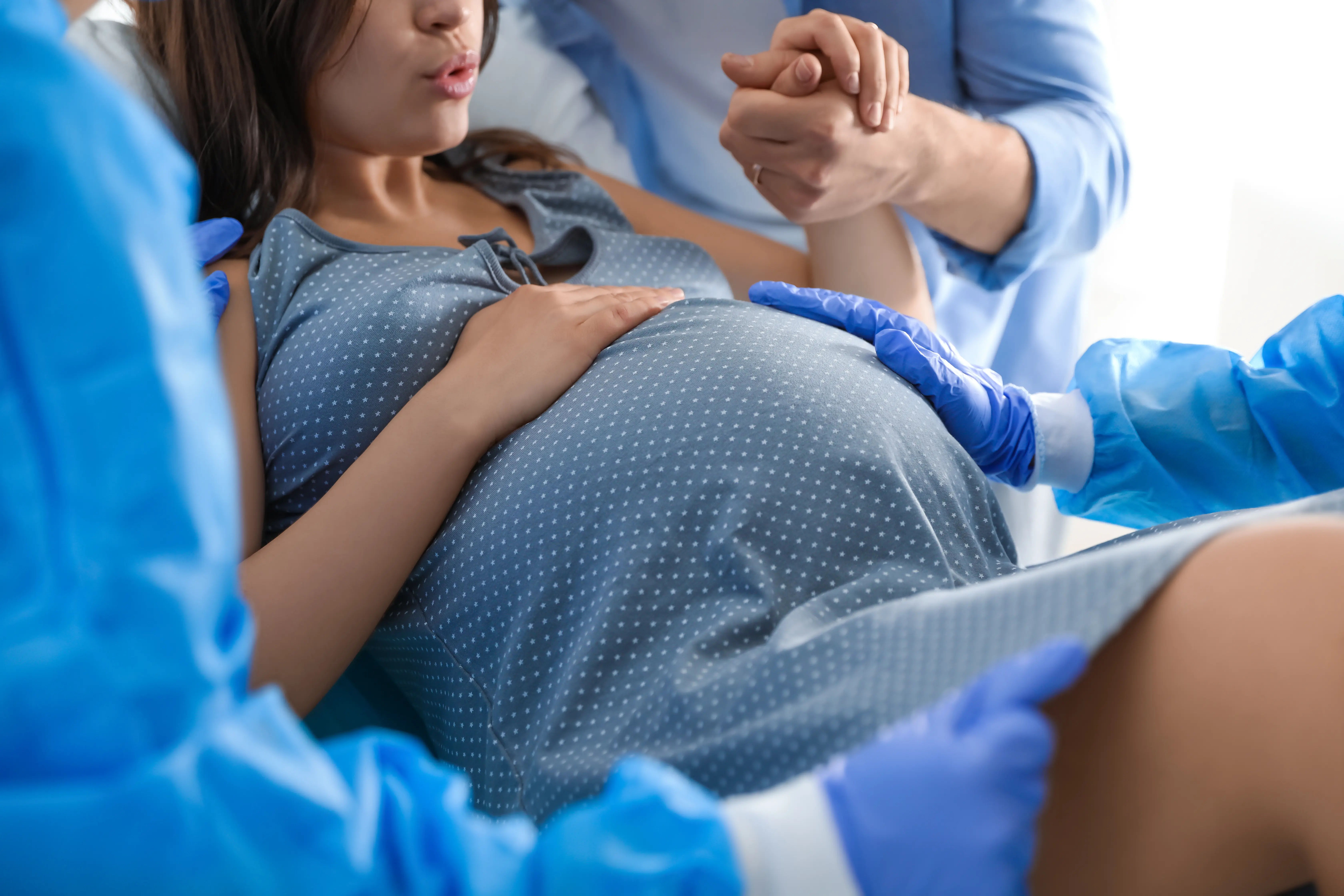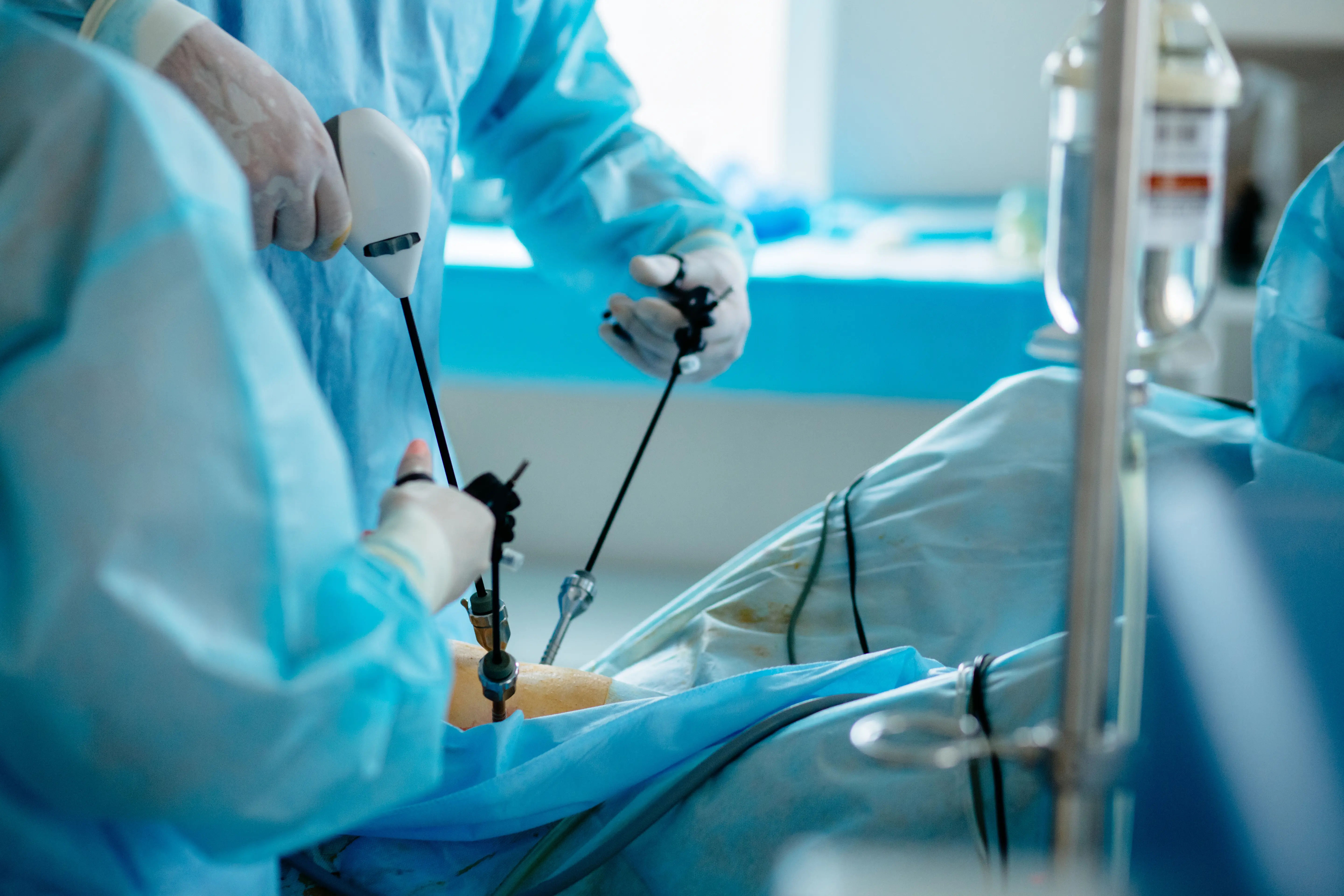Hysterectomy After Birth
Learn about hysterectomy after birth, including reasons it may be needed, recovery tips, and how it affects postpartum health. Understand this surgical procedure and its impact on long-term wellness.

Written by Dr. Shaik Abdul Kalam
Reviewed by Dr. Rohinipriyanka Pondugula MBBS
Last updated on 13th Jan, 2026

Introduction
Welcoming a baby into the world is a joyous experience, but sometimes, childbirth can lead to complications that require serious medical intervention. One such procedure is a hysterectomy after birth, also known as a postpartum hysterectomy. If you or someone you know has been advised to undergo this surgery, it’s natural to have questions and concerns. This article will help you understand what a hysterectomy after birth entails, why it might be necessary, and how to recover afterward.
What Is a Hysterectomy After Birth?
A hysterectomy is a surgical procedure to remove the uterus (womb). When performed immediately after childbirth, it is called a postpartum hysterectomy. In some cases, the cervix, ovaries, or fallopian tubes may also be removed, depending on the medical situation. This procedure is typically done as an emergency measure when life-threatening complications arise during or after delivery. While it is rare, it can be a lifesaving intervention.
Why Might a Hysterectomy Be Needed After Birth?
A hysterectomy after birth is usually performed in emergency situations where other treatments have failed. The most common reasons include:
1. Severe Postpartum Hemorrhage (Heavy Bleeding)
The most common reason for a postpartum hysterectomy.
Occurs when the uterus does not contract properly after delivery (uterine atony).
Can also happen due to tears in the uterus or cervix.
2. Placenta Accreta, Increta, or Percreta
Conditions where the placenta grows too deeply into the uterine wall.
Can cause severe bleeding during delivery.
3. Uterine Rupture
A tear in the uterus, often due to previous C-sections or labour complications.
4. Severe Infections
Rare cases where infections (like sepsis) threaten the mother’s life.
5. Cancer or Large Fibroids
If cancer or large fibroids are detected during pregnancy or delivery.
Consult Top Specialists for Personalised Tips
What Happens During a Postpartum Hysterectomy?
A postpartum hysterectomy is a rare but sometimes necessary surgical procedure performed after childbirth to remove the uterus, typically to manage severe complications such as uncontrollable bleeding or infection.
The surgery is usually performed under general anesthesia.
The doctor removes the uterus (and sometimes other reproductive organs) to stop bleeding or address other complications.
If only the uterus is removed, you will no longer have periods or be able to conceive.
If the ovaries are removed, you may experience surgical menopause, leading to symptoms like hot flashes and mood swings.
Recovery After a Hysterectomy After Birth
Recovering from a hysterectomy after childbirth can be physically and emotionally challenging. Here’s what to expect:
1. Hospital Stay
You may stay in the hospital for 3-5 days, depending on your condition.
Pain management and monitoring for infections or complications will be provided.
2. Physical Recovery
Rest is crucial. Avoid heavy lifting or strenuous activities for 6-8 weeks.
You may experience vaginal bleeding or discharge for a few weeks.
Pain and discomfort are common but manageable with prescribed medications.
3. Emotional Recovery
It’s normal to feel grief, sadness, or anxiety, especially if you had hoped for more children.
Seeking support from loved ones, counsellors, or support groups can help.
4. Follow-Up Care
Attend all follow-up appointments to ensure proper healing.
Discuss hormone replacement therapy (HRT) if your ovaries were removed.
Lifestyle and Long-Term Health Considerations
Understanding the impact of daily habits on our overall wellbeing, lifestyle and long-term health considerations play a crucial role in preventing chronic illnesses and promoting a healthier, more balanced future.
1. Fertility After Hysterectomy
Since the uterus is removed, pregnancy is no longer possible.
If you wish to have more children, discuss options like surrogacy or adoption with your doctor.
2. Hormonal Changes
If ovaries are removed, you may experience menopause symptoms.
HRT (hormone replacement therapy) can help manage symptoms.
3. Sexual Health
Most women can resume sexual activity after 6-8 weeks.
Some may experience vaginal dryness (especially if ovaries were removed)—using lubricants can help.
4. Pelvic Floor Health
Pelvic floor exercises (Kegels) can help strengthen muscles.
Physical therapy may be recommended if you experience bladder or bowel changes.
When to Seek Medical Help After Surgery?
Contact your doctor immediately if you experience:
Heavy bleeding (soaking a pad in an hour).
Severe pain not relieved by medication.
Fever or chills (signs of infection).
Foul-smelling discharge from the incision or vagina.
Conclusion
A hysterectomy after birth is a major surgery, but it can be life-saving in critical situations. While the emotional impact can be significant, many women go on to lead healthy, fulfilling lives afterwards. If you have concerns or need support, don’t hesitate to reach out to your healthcare provider. If you have questions about hysterectomy or postpartum care, you can consult a specialist on Apollo 24|7 for expert advice.
Consult Top Obstetrics and Gynaecology Surgeon
Consult Top Obstetrics and Gynaecology Surgeon

Dr. Mona Yadav
Obstetrician and Gynaecologist
19 Years • MBBS, MD (Obstetrics & Gynaecology)
Dombivli
Nulife multispeciality, Dombivli

Dr. Parul Sharma
Obstetrician and Gynaecologist
8 Years • MBBS, MS (Obstetrics & Gynaecology)
New Delhi
THE DOCTORS NESST, New Delhi

Dr. Debajyoti Goswami
Obstetrician and Gynaecologist
10 Years • MBBS,D.G.O(DNB),Adv. Infertility Tech.(AIIMS),Fellowship in Diabetes(U.K),Comprehensive Abortion Care(Govt. Of W.B), Certificate in Clinical Embryology(AIIMS, BHUBANESWAR)
Bankura
D.G Clinic, Bankura
(25+ Patients)

Dr. Asha Rani Singh
Obstetrician and Gynaecologist
24 Years • MBBS DGO
Delhi
Dr Asha Rani Singh Clinic, Delhi

Dr. Shyamala Devi
Obstetrician and Gynaecologist
38 Years • MBBS, MS Obstetrics & Gynaecology
Vijayawada
Sri Shivshakti Nilayam, Vijayawada
Consult Top Specialists for Personalised Tips

Dr. Mona Yadav
Obstetrician and Gynaecologist
19 Years • MBBS, MD (Obstetrics & Gynaecology)
Dombivli
Nulife multispeciality, Dombivli

Dr. Parul Sharma
Obstetrician and Gynaecologist
8 Years • MBBS, MS (Obstetrics & Gynaecology)
New Delhi
THE DOCTORS NESST, New Delhi

Dr. Debajyoti Goswami
Obstetrician and Gynaecologist
10 Years • MBBS,D.G.O(DNB),Adv. Infertility Tech.(AIIMS),Fellowship in Diabetes(U.K),Comprehensive Abortion Care(Govt. Of W.B), Certificate in Clinical Embryology(AIIMS, BHUBANESWAR)
Bankura
D.G Clinic, Bankura
(25+ Patients)

Dr. Asha Rani Singh
Obstetrician and Gynaecologist
24 Years • MBBS DGO
Delhi
Dr Asha Rani Singh Clinic, Delhi

Dr. Shyamala Devi
Obstetrician and Gynaecologist
38 Years • MBBS, MS Obstetrics & Gynaecology
Vijayawada
Sri Shivshakti Nilayam, Vijayawada




